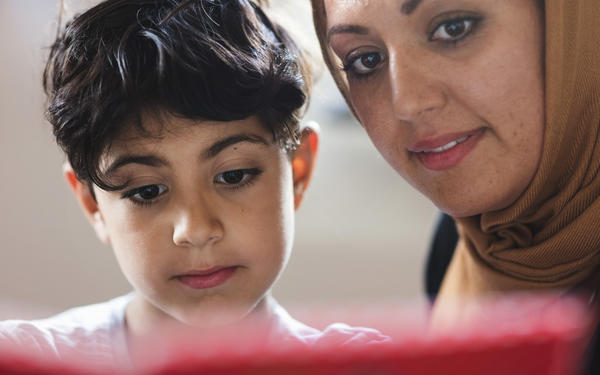Excellence in Arabic literacy
Today is Arabic Language Day 2023, the UN celebration of “the Language of Poetry and Arts.”
Excellence in Arabic literacy has the potential to transform the future – for individuals, for nations, and our global community. Developing Arabic literacy is not an end in itself, but is also a tool to access knowledge and skills, connect the more than 467 million Arabic speakers around the world, and drive the change needed to address global challenges.

Arabic literacy is a bridge between past, present, and future. It connects learners to the Arab world’s rich heritage of achievements in art, philosophy, culture, science, and religion. It is a language of learning across the school curriculum in many countries around the world, and a core foundation for success in subjects taught in Arabic. It provides a connection for fostering relationships between generations. And it is the medium for creating and sharing new ideas with the diaspora and building the vision of future leaders, entrepreneurs, and cultural creators.
For Arabic-speaking countries, enhancing Arabic literacy is essential to enable excellence in education overall. Nonetheless, there remain widely recognised Arabic literacy issues which local and international partners all play a role in addressing together:
1. Complexity of the Arabic language (diglossia and orthography)
2. Limited exposure to Modern Standard Arabic (MSA) and the dominance of dialect and English
3. Teacher-centred Arabic teaching pedagogies and learner attitudes
4. Lack of high-quality Arabic resources and appropriate assessment
5. Lack of dedicated teacher qualifications and professional development for Arabic teachers.
Cambridge and Arabic Literacy
Jane Mann, Managing Director, Partnership for Education, Cambridge University Press and Assessment
Through our work with Arabic-speaking countries, Cambridge has a deepening understanding of the issues of Arabic literacy and the challenges that teachers, parents, and learners face when teaching and studying Arabic, as well as those faced by governments when developing materials and resources for the Arabic language.
The future of Arabic literacy materials
We believe there is an opportunity for Arabic teaching and resources to follow a more modern, innovative, and engaging pedagogical approach similar to other international subjects and languages. But the materials also need to enhance and reinforce national culture and identity, and critically bridge the gap between learners’ multilingual and multidialectal contexts and Modern Standard Arabic.
While historic literature is a core component of Arabic literacy, Arabic is a living language taught in a modern context alongside other subjects. A student’s experience of learning Arabic should not be in isolation from the rest of the curriculum. Teaching of Arabic should also embrace exciting new topics such as space exploration, scientific discovery, and new technologies, and support students to develop analytical skills that will equip them for future study and work.
Reading and Arabic Literacy
Hear from Isobel Abulhoul, CEO, Emirates Literature Foundation.
Interested in talking to our Arabic literacy specialists? Get in touch on [email protected]
